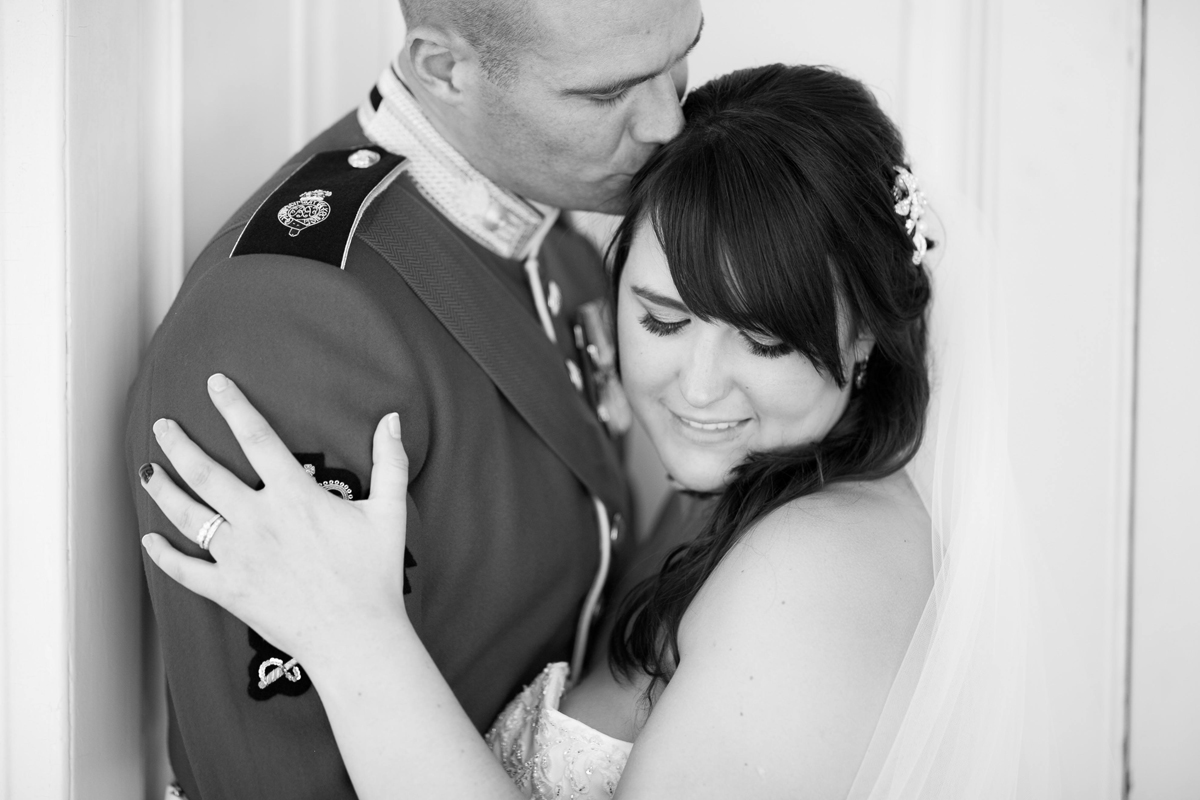I have thought long and hard over the past few months about writing and publishing my story. I flick-flack between wanting to make my story known, so that it can help someone else, to feeling ashamed that I have got this condition (disease as it’s normally known is such a horrible word), to not wanting people to feel sorry for me.
The real reason for holding back on writing it, is because I wondered why people would want to know about me? What’s so special about me? Ultimately I have always said that I want to make a difference and to help people and if by writing down my story I do, then maybe I’ll have achieved something I’ve always set out to do.
This is my story from being a healthy person, to being very unwell, to trying to find a balance in my new life. Unfortunately, it is not a fairy tale story like it was meant to be when this all happened. It started one week before my (OUR – Dave will kill me for individualising it) wedding.
The planning of our wedding was so much fun; choosing a venue, a caterer, a florist, the bridesmaids’ dress shopping (arguably the most stressful part for me), the dress. The wedding to-do list, as I found out, goes on and on and on. By the beginning of June (one month before the wedding) I was over it. Eight months of planning with one month to go and working full time shifts (long days and nights) were killing me. I was shattered.
Images by Ryan Welch

I was working nights in my job as an intensive care nurse on the week commencing the 19th of June 2017. Three nights (Tuesday to Thursday) were my last shifts before going on leave for the wedding. On my first night, Tuesday the 20th of June, I had admitted a very unwell patient and was settling them in and stabilising them. At around midnight I started feeling really dizzy – it was like someone had flicked a switch and suddenly the world was spinning. I couldn’t walk without stumbling, my spatial awareness was all wrong and I couldn’t make anything stay still. I put it all down to the stress of working nights, being at the end of the wedding planning process and my fiancé being away with work. All stressors as we well know. And thus, I soldiered on and made my way through my night shifts. My plan was to sleep off the dizziness over the weekend and continue with the last push towards the wedding the following week.
After I’d finished my night shifts on the morning of Friday the 23rd of June, I rode home unsteadily on my motorbike, foolish now that I look back at it with the benefit of hindsight – but I wasn’t to know then what I know now. I had discovered that if I concentrated really hard while riding my bike the dizziness almost went away and so after a precarious ride home I collapsed into bed.
That weekend I went to my Godmother’s 70th birthday party. The dizziness was getting slightly worse every day but I was ignoring it and hoping that it would just go away on it’s own.
It was a garden party and there I met a nice lady, who told us within about five minutes of meeting her that she had Multiple Sclerosis (MS). I remember thinking to myself, ‘you poor thing, what an awful condition to have.’ Little did I know that not four days later I would be told that I have it too.
On Monday the 26th of June, after suffering for nearly a week with awful dizziness, I booked an emergency appointment to see my GP. I had self-diagnosed with Labrynthitis (an inner ear infection which affects your balance) and the GP advised that I’d had the same in January of the same year so sent me on my way with Prochlorperazine – a medication proven to help the inner ear. The plan was to go back and see them at the end of the week if things didn’t start improving.
My (our) wedding was only six days away at this point, so I read the instruction leaflet and doubled my dose of the medication. After 48 hours of no improvement and in fact slightly worsening symptoms, I booked another emergency appointment on Wednesday morning to see my GP again. Luckily my fiancé had come home from work a day early and so was able to come with me. My appointment was swapped over, enabling me to see one of the GPs who had an ‘interest in dizziness’, a small act that would go on to mean so much – I am so thankful that I saw her.
The GP thoroughly assessed me and told me that she thought I needed an urgent CT scan of my brain. At this point, already being worried that something bad might be going on, I broke slightly and welled up. I looked at my fiancé and he gave me a look as if to say ‘everything will be fine’. And so, I pulled myself together and went over to my local hospital, but internally I was panicking.
As an intensive care nurse, I have seen the worst of what illnesses can do to patients and so my slightly hypochondriac inclined brain was going ten to the dozen trying to think about what neurological conditions I could have. I kept coming back to a brain tumour: I’d had a migraine at the beginning of June that was very concentrated to the middle of my head. Add in the concerns, which the GP obviously had and I convinced myself that that this was the problem.
By 10:45am, I was booked in and sitting in the A&E waiting room with my fiancé waiting for the staff to call me through. After around ten minutes I was taken through into Majors, stuck with needles (they took bloods and a cannula was inserted – not ideal four days before your wedding) and told to wait. After about half an hour they transferred me to the Medical Assessment Unit (MAU). I saw a Medical Consultant fairly quickly while waiting in MAU and she advised that I needed an MRI scan as they wanted more detailed images of my brain and spinal cord after having spoken to the Neurology team. I then waited for another six hours for a scan.
At around 4pm, my fiancé went home to get me an overnight bag because it looked like I was going to be staying in over night, much to my distress. For me, during this time, the only relief was sleeping. It was the only time that I didn’t feel dizzy. Nothing alleviated my symptoms. It was hellish… And so when my fiancé went home, I went to sleep. I was woken at around 5pm by the Senior House Officer (SHO – Doctor) and told that they had to delay my scans due to emergency admissions coming through A&E. I was delighted when he told me that I could go home and come back in the next day. Thankfully after a nauseated and boring seven hours in hospital I was released.
My mother-in-law-to-be was flying in from Cyprus that night and, having never met her, I didn’t think having her almost-daughter-in-law in hospital the night she arrived would be a very good first impression.
The next day I went back into hospital on my own at 8am and waited for my scans. I was on a unit called Ambulatory Care, which is an outpatients’ department. I had two MRI scans of my brain and spinal cord within the hour and was told to wait for them to be reported. At around 11am and having watched the waiting room turn over patients twice since I’d been there, I asked the receptionist whether my scans had been reported yet. I was told that they hadn’t and was asked to wait a bit longer.
I was getting antsy.
No one likes being in hospital and being on my own seemed to magnify my anxieties. At 12.15pm I spoke to the receptionist again and asked whether I could go home and come back in for the results. I explained that I live literally five minutes from the hospital so it wouldn’t be a problem to come back in. My Medical Consultant then came out to speak to me, apologised and asked whether I could go back to MRI for a further scan with ‘contrast’ (which is an agent injected into the blood stream that shows up like a dye on scans to make the images clearer). I agreed but told her that I would then like to go home and she could call me back in later with the results. She agreed, gave me her mobile number and I gave her mine and I went off to the scanner again. Looking back on it now I think she knew what they were dealing with, and could see that I was agitated and let me go on my way, knowing that if I was calmer I would take the news better. I called my fiancé on my way to the scanner and asked him to come and get me; he brought his mother with him and she was being so lovely despite only having met me eighteen hours before.
I was stabbed in the other arm with a cannula for contrast (the healthcare assistant who inserted it blew my vein, which bruised immediately), had my scan and then went home. I looked like a hardcore drug addict with the intense bruising that I had on my arms: again not ideal three days before the wedding.
About an hour and a half later I was in Nando’s having lunch and my consultant called me and asked me to come in and speak to the Neurology team. I knew from the day before that they were involved so this didn’t come as a shock to me. The shock was being asked, “will your fiancé will be with you?” At work I’ve had to call enough families in for bad news and I always make sure that they have someone with them. This triggered alarm bells despite my fiancé trying to convince me that this was probably just something they ask routinely.
I went back in for 4pm and saw the Neurology Registrar. She did all of the same assessments on me that had been performed throughout the last two days and then asked me what I thought was wrong with me. I jokily said, “I’ve convinced myself that I have a brain tumour, ha!”. Her response was “well you don’t have a brain tumour”.
Oh my, I felt relief, then apprehension. There was more to come. There was a ‘but’…
My heart was pounding and I grabbed my fiancé’s hand. I was then told that I have Multiple Sclerosis and that I was going through a relapse. This was the moment that my life changed forever.
Multiple Sclerosis (MS) is a chronic degenerative neurological condition where the immune system attacks the insulating protection around the nerves in your brain called Myelin and breaks it down. It is incurable; it is unpredictable and can cause a range of symptoms. The flaring of symptoms is called a relapse and has several other colloquial names ranging from an attack, a flare up, a blip, an episode or an exacerbation. For me, during this relapse, I had damage affecting the nerves that control my balance and eyesight. The other symptom I had is called Nystagmus, which is when your eyes flicker involuntarily during purposeful movement such as looking side to side.
It turns out that my very first dizzy episode back in January 2017, may well have been my first MS relapse. However, because it was nowhere near as bad as my second dizzy flareup later in 2017, and had appeared to be resolved through medication, it was left undiagnosed.
No one knows what causes MS, which again contributes to the uncertainty of this condition and makes it hard to come to terms with. Diagnosis age is between 20-40 years old.
You’re three times more likely to get it if you’re female and live in the northern hemisphere; smoking can be a contributor; and there is evidence to suggest that glandular fever might have something to do with it. You may also ask what chronic means. In layman’s terms it means that a condition is persisting for a long time or constantly reoccurring. In real terms, it means a life-changing occurrence that the person has to manage and work into every aspect of their daily lives.
I was shocked. Utterly shocked. Devastated. After about thirty seconds of calm and processing, the tears came. Hysterical, big, baby tears. I had images of being a 27-year-old in an electric wheelchair, needing a hospital bed at home, a tracheostomy (artificial breathing tube in the neck), a home ventilator, total dependence on everyone else around me and above all a huge amount of guilt.
My fiancé’s father had MS and died with it in 2014, and now he was about to marry someone else with the same condition. I shut down.
I’ve always known that during ‘breaking bad news’ conversations relatives don’t really take any of the information in, however now I have a new appreciation of how little people actually register. I heard very little else of what the Registrar had to say. I heard ‘MS’ and to me, that meant my life was over. I’d been given a death sentence.
I have always been a relatively active person. I’ve played county level rugby, I used to pole dance for fitness and I went to regular boot camp classes during the week. In an instant, my perception of what I would be able to do changed and I viewed myself as an invalid. I don’t remember much from that meeting except being told that I mustn’t see it as a life limiting condition. I remember thinking to myself, ‘How do you know what I am thinking? How can you tell me what to think? You’ve not been told that you’ve got MS. How can I have it? No-one in my family has it. Where has it come from? How have I gone from being a normal, healthy, active 27-year-old to being a cripple with no warning???’
My fiancé was my hero. He went into hyper-acute mode and started questioning it. He asked whether they could have misdiagnosed me, whether there was anything else it could have been and this was when the Registrar informed us that the team had never seen such conclusive scans before. At varying intervals throughout the consultation I remember regaining my composure and being able to listen and then hearing or remembering something else that had to change – and then breaking down. It breaks my heart thinking about the pain I felt in that consultation. It reduces me to tears to think about it. I dread to think about what my fiancé was feeling. He kept it together so gallantly. He will always be my hero.

We were given some time in the room after the consultation to come to terms with what we had just been told. I spent the whole time crying my eyes out. I remember the pain so clearly that writing this is giving me palpitations. I remember wondering how on earth I was going to come to terms with my diagnosis? With some illnesses you can put them down to poor life choices: a smoker with lung cancer or someone who makes poor dietary choices with late onset type two diabetes. Some injuries you can put down to stupidity but this was a bolt out of the blue; I had not asked for it: I had not done anything to bring this on. It was a complete anomaly for me. It then occurred to me that my fiancé might not want me in his life any more and so I asked him whether he still wanted to marry me. I said that he didn’t have to but that he would need to tell me now to get all the pain out in one so that I could cancel the wedding. He told me to stop being ridiculous and that he’s never going to leave me. I have so much love, adoration and appreciation for everything he did for me that day and has done since.
We left the consultation room to find my mother-in-law waiting for us with coffee. She looked concerned and this broke me further. I started crying and I told her straight away. I felt awful because she had cared for her husband for so many years and now she had a nearly-daughter-in-law with the same condition. She hugged me so tightly, the way only a mother could hug you. Along with my rock of a fiancé, this was exactly what I needed at that moment in time, warmth and love.
I was given a course of steroids to “get me through Sunday” (my wedding day) and recall thinking I didn’t want to ‘get through it’ – I wanted to enjoy it. I thought the steroids would make me instantly better. I was wrong. It took another six weeks or so for them to take effect fully.
I have often wondered what I would do if I had to break bad news to my family about my health if it changed drastically. I used to think that I would wait until I was with them, sit down with them all and tell them face-to-face. On the day I was diagnosed, this pre-conception however went straight out the window. We were sitting in the hospital café waiting for my prescription when my brother called me on the phone. I told him straight away because I was crying and he just kept saying how sorry he was. I then called my parents and spoke to my mother who was strong on the phone, but who I subsequently found out cried for three hours after receiving my news. My sister was the calmest out of all of my family. This could have been because I waited until she was home with her boyfriend to tell her. It could also have been because I’m not sure that at the time that she fully understood what the condition is or what it means for my, for our future. I felt so guilty for telling my family over the phone, but I didn’t want them to worry about why I had been in hospital for the best part of two days.
My parents both came down the next day and we met them at our favourite pub where we live. I remember seeing my father standing outside the pub and bursting into tears, running to him and hugging him so tightly. I’d spent so much time crying, I was exhausted. I felt like a completely different person now. I felt deformed. I felt guilt for not being the person they’d brought up and for not being the person to whom my fiancé proposed. I felt empty, like someone had taken away my spark. It felt like the Registrar had told me that I no longer had a right to be happy and excitable for the wedding anymore because I was broken stock.
It was in that pub, sitting at the table and looking at part of my wonderful, loving family surrounding me, that I decided I want to make a difference.
I’m not sure how to do this yet, but I will. Even if it is for those in my area with this condition, I’d like to turn this horrible situation into a positive one.
Our wedding was a wonderful day. Only about half of the guests knew what was going on and most if not all came up to me after the ceremony to tell me how emotionally charged it had been. It was so wonderful having all of my friends and family surrounding me in the beautiful setting that we had chosen. I have very differing memories of the wedding day. I developed facial dysphagia the night before the wedding, which meant the muscles in my face didn’t work properly.
I was exhausted and I felt like I couldn’t smile properly. Everyone tells me that you can’t see this in the wedding photographs, but I know. I know. The most important part was that I got married to my best friend. Without him, I wouldn’t have been as strong as I had felt at the time, and as strong as I feel today. He is an exceptional human being.
It’s now six months on from my diagnosis and I am still coming to terms with it all. I chose my treatment and started taking it three and a half weeks after diagnosis, which is the quickest, I believe that my specialist team have ever achieved. I now have to go for three-monthly blood tests and six-monthly appointments with my specialist nurse/Consultant as well as annual MRI scans. Ironically I have always hated hospitals as a patient and now I have to attend one regularly.
There are things that you don’t appreciate will change when you get diagnosed with a chronic condition like MS. I could have had my driving licence taken away from me (thankfully I haven’t). It can hike up insurance policies too; I need a particularly robust travel insurance policy to make sure that if I have a relapse on holiday I can be flown home. I can never play a contact sport again, neither will I ever be allowed to scuba dive, which is something that I’ve always wanted to do. I can’t give blood or donate organs either. I have to plan my life alongside my specialist team such as when to have a family because all of the MS treatments can cause horrible birth defects if a mother is taking them during pregnancy. I felt very bitter about this for a long time. MS had seemingly taken away my independence already but I’m not hugely disabled yet.
Condition changes are unpredictable because no one knows where the damage will next occur. MS is always damaging your brain (this damage is referred to as ‘silent relapses’ and can only be seen on MRI scans), it’s only when inflammation and symptoms start showing that you know there is serious damage being done. In the early stages of the condition the damage that occurs during a relapse can heal and you fully recover. Throughout the progression of the disease the damage only heals a bit, which means that you get progressive disability over time.
My treatment is an oral tablet twice a day and is such that I had to eat a high fat, high protein diet for the first three months meaning that all the weight I’d lost before the wedding was piled back on. This was probably one of the hardest parts of this condition for me. I was doing so well with my weight loss and then suddenly I find myself back to where I was a year ago after losing a stone and three quarters before the wedding. That has impacted very negatively, along with everything else, on my self-esteem and self-worth.

MS has also put my career on hold because I had to take seventeen weeks off work. In this time I was meant to be completing various courses to enable me to promote but all of this went out of the window for the time being.
I have learnt that a large part of being diagnosed with a chronic condition are the internal battles. I feel a huge amount of guilt and even though I know that this is unfounded, I still feel it.
I feel angry a lot of the time because people around me don’t understand what I am going through and don’t seem to want to. It may be that they are being ‘too British’ about it and not asking questions but I’d rather they asked me than seemingly didn’t care. I am currently experiencing symptoms not dissimilar to Post Traumatic Stress Disorder (PTSD) and have finally accepted that I need some help. Accepting this was very difficult for me because I have always prided myself on being able to handle various different situations. As my (now) husband pointed out I have never had to deal with anything this big before.
[instagram url=https://www.instagram.com/p/BU4_k8elaQW/?taken-by=theonlymrsmintyroper hidecaption=true]
Telling people has been emotional. A lot of people are very kind and concerned, not many people have an insight into what it is so don’t know what to say but a small number have said “It could be worse”. I feel so strongly about that being one of the worst things you can say to someone newly-diagnosed with a chronic degenerative condition because at the time it really couldn’t have been any worse. My life changed so drastically in a split second. It is also an invisible or hidden condition in that no one can see what is happening in my brain or how I feel or how it is effecting me and so people tend to forget. That is difficult.
Now, six months later, I have a healthier outlook, but it’s still an internal battle. There may be a cure in the future, but for now, it’s about managing my condition and making sure I make the most out of life, love and family (this includes my amazing little kitty cat who enjoyed lots of snuggles during my four month relapse).
It truly has been an eye-opener and I am so lucky to have the family and friends that I do around me because I wouldn’t have got through this without them.
Minty x










